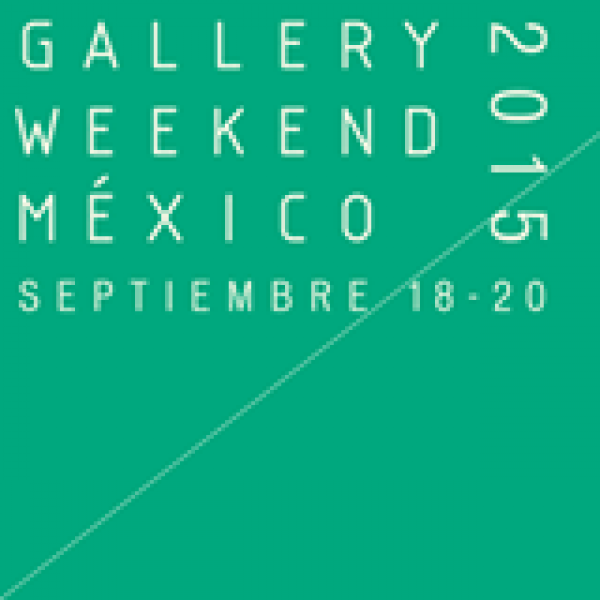Descripción de la Exposición
Primera exposición individual de Adrien Missika en Proyectos Monclova.
Adrien Missika's exhibition Zeitgeber will give you time. It will take you into the deep, uncertain time of dark caves and the beige infinity of outer space.
Zeitgeber, German for "time-giver," is a concept describing environmental signs, such as sunset, sunrise and air temperature, that synchronize the inner clock of either human or animal to the Earth's 24-hour and 12-month cycles. Our biological rhythms are thus influenced by such external cues affecting not only our physis but also our psyche. The term was first employed by Jürgen Aschoff—one of the founders of Chronobiology—in the early 1950s when the University of Freiburg—Aschoff's alma mater—was heavily dominated by Martin Heidegger and his philosophy of Being and Time. Interestingly enough, it was around that same time that air travel created the phenomenon of jet lag.
The central works in the show are a set of specially designed hammocks, which form a fleet of nomadic biotopes, carrying water, sand, Zen objects, and written records of experiences in altered states. Like ships, they are suspended in the "somewhere" rather than simply connecting two dots, and resonate with their dynamic and unstable environment.
The photographic works Stargazer are taken while Missika swings in his hammock, searching the sky. They show the repeated attempt at capturing the moon breaking through the clouds and trees. Yet the limited sensitivity of the camera's digital sensor creates a blurry imagery, which entirely abstracts the original view.
What emerge are forays both into the inner workings of digital image objects—showing the imprecision of contemporary photography—and into outer space, reminding us of the Hubble telescope imagery. Missika's simple photographs could, in all their colorful blurriness, also see distant constellations, as Roy Batty does in Blade Runner: "I've… seen things… you people wouldn't believe. Attack ships on fire off the shoulder of Orion; I watched c-beams glitter in the dark near the Tannhäuser Gate… All those… moments… will be lost, in time, like tears… in… rain. Time… to die."
Missika's work playfully combines different notions of space and time: the walls of the entrance-corridor are painted in a color called "Cosmic Latte," the average color of the universe as determined by a group of scientists in the early 2000s. This work—titled Cappuccino Cosmico—immerses the visitor in the color of deep space, where only telescopes and mathematics reach.
The work Higher Future—concrete columns with their steel nerves sprawling skywards—contemplate architectural and urban temporality and incompleteness. In many countries, homeowners circumvent building regulations by leaving the mainstays of their houses unfinished. What may seem like structural decay is actually temporal—and legal—corruption, allowing them to maybe build more floors in the future. Often, however, the inner clock of architecture doesn't make buildings, but plants and vines grow on them.
In his video Agave Agapé, we witness the artist cutting down the blossoming flower growing from an agave plant, which heralds its imminent death, but also allows it to enter another life cycle. Here the artist is a metronomic Zeitgeber, rhythmically chopping the massive stem with his machete in a cosmic and cosmetic performance.
Missika's way of positioning himself and us in space creates a similar "Eigenzeit," dilated and relative time.
–Paul Feigelfeld
Adrien Missika (*1981, Paris) lives and works in Mexico City and Berlin. His works have been shown in numerous solo and group exhibitions, including recently in Paris at Bugada & Cargnel, Palais de Tokyo, Centre Pompidou and Centre Culturel Suisse, as well as at Metro Pictures in New York, Fotomuseum Winterthur, Kunsthaus Glarus, and Galerie Édouard-Manet de Gennevilliers.
In 2011 he was awarded the Prize of the Fondation Ricard and the Kiefer Hablitzel Prize, followed by the Guggenheim Foundation Prize in 2013.

Exposición. 18 sep de 2015 - 07 nov de 2015 / Proyectos Monclova [ESPACIO CERRADO] / Ciudad de México, Distrito Federal, México

Premio. 13 mar de 2025 - 27 abr de 2025 / Madrid, España
Componer Saberes para imaginar y construir futuros sostenibles

Formación. 01 oct de 2024 - 04 abr de 2025 / PHotoEspaña / Madrid, España